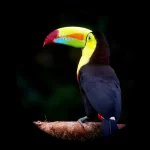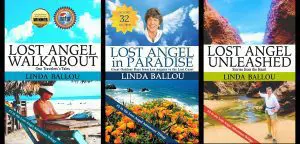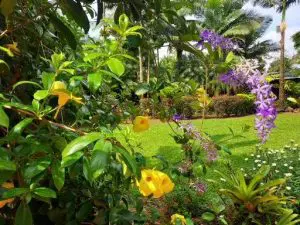Linda Ballou’s Costa Rican Odyssey Part Two: A Little Country with a Big Heart
By Linda Ballou, NABBW’s Adventure Travel Associate
Bowers of luxuriant tropical flowers grace the well-tended grounds of the Blue River Resort and Hot Springs. Magenta spikes of torch ginger, mounds of yellow hibiscus, and many varieties of dripping orange heliconia brighten the scene. Meandering paths lead to several pools heated with thermal energy from the nearby Rincon de la Vieja volcano.
Cool-off pools are just feet away. Inside a maze of trails is a butterfly farm where brilliant Blue Morphos waft on a gentle breeze. Wander further and you will find a sauna and opportunity for a mud facial. The rooms are gracious with dark teak wood floors and porches shaded by palm trees. I slipped into the hammock on my porch after a tasty dinner of chicken fajitas. Here in the Land of pure Vida, all the troubles in the world were very far away as I officially sank into Tico time.
Near the resort, a two-tiered waterfall spills into a natural swimming pool. You can horseback ride to the falls. The resort is in cowboy country where horses are the preferred mode of transport by the locals. I followed behind the riders in our group in the air-conditioned bus. A short hike took us to the falls.
While floating in the pure waters gazing skyward I noticed human monkeys flying overhead on a zip line that came out of nowhere. After this refreshing interlude I was content to return to the hot pools for a final round of relaxation.
A long overland drive on a good highway brought us to Punta Arenas on the Pacific Coast where we entered an enormous nature preserve. Many hotels, condos, private homes, and a few restaurants are inside the preserve along the coast, but thirty seven acres of the preserve are undisturbed rain forest.
Costa Rica has earned the reputation of being the Poster Child for Eco-Tourism. Nearly 60 % of the country enjoys a protected status. In the 1970s cattle ranching was in full swing. Forests were cleared to create grazing pastures. Animals were hunted by locals for food. Birds like the scarlet macaw were captured and sold around the world to near extinction. Those trends have all been reversed.
Hunters are now paid to guard preserves. Many forests have been replanted and are in a second Growth phase. Fines are imposed upon those capturing and selling animals. The stunning scarlet macaw is thriving in the Punta Arenas coastal area where I saw several pairs in flight. In addition, projects like the Tapir Wildlife Corridor are in the works aimed at connecting “green Islands” into a pathway for animals like the puma, jaguars, monkeys, and numerous bird species for their migrations. Biodiversity conservation is a key ingredient for successful eco-tourism which has become the mainstay of the Costa Rican Economy today.
For the finale of our trip, we paddled outriggers along the rugged green coast as frigate birds wheeled overhead. We landed at a deserted cove with a sandy beach and hopped into the warm, buoyant water. After a picnic lunch beneath shady trees and a snooze in the sun, we paddled on to new adventures. That evening at Playa Blanca Beach we toasted a sultry sunset of ominous violet and purple clouds hovering on a golden horizon. Locals bobbed like seals in the gentle surf as the intense tropical sun sank into a tranquil sea.
Our last day was spent on the Rio Tarcoles looking for crocodiles, for which the river is most well-known. We bumped into a 17-foot, 93-year-old ruler of the river that was being challenged by a 70-year-old contender named Mike Tyson.
For me, however, the river trip was more about the many birds along the shore and roosting in the mangrove trees. (Yet another micro-climate to explore.) Costa Rica is home to over 350 species of birds. Trogon and roseate spoonbills were spotted along with numerous shore birds.
The wonders of Costa Rica extend far beyond what we were able to cover in the Real Affordable Rain Forest tour offered by Overseas Adventure Travel. This tour provides an overview of the geography of the country, comfortable and charming lodging, well-informed local guides, great local cuisine, and numerous activities to choose from. (Not to mention a competent driver able navigate narrow, winding mountain roads.) A big bang for your buck!
May through November is the wet season. I visited in the second half of May and had very little rain; just a few brief afternoon showers. In April there was an intense heat wave that broke records. While global warming is changing weather patterns around the world, November through May is the dry season and still considered the best time to visit Costa Rica.

Want to see a toucan? You can on an OAT tour of the rainforests in Costa Rica; along with frigates, trogon, roseate spoonbills, scarlet macaws, plus hummingbirds and many others. It’s a birder’s paradise. Photo courtesy Michael Barrantes.
NOTE: I was on the last Overseas Adventure Tour (OAT) that will include the Blue River Resort on their itinerary. The resort is under new management who have decided not to host group tours in the future. If you are an independent traveler flying into the Liberia Airport, you may want to check their website for a status update. There will likely be higher prices and renovations underway.
However OAT assures me they will provide a suitable replacement for the Blue River Resort on future tours.
Adventure Travel writer, Linda Ballou, is the author of three novels and numerous travel articles appearing in national publications. Linda’s Lost Angel Walkabout-One Traveler’s Tales is the first installment in her Lost Angel Adventure trilogy. It is an armchair traveler’s delight filled with adventure to whet your wanderlust. Linda loves living on the coast of California and has created a collection of her favorite day trips for you in Lost Angel in Paradise. Lost Angel Unleashed, the third book in her travel series, is travel memoir that takes you on her most meaningful journeys and some destinations to die for… Learn more at www.LostAngelAdventures.com






























